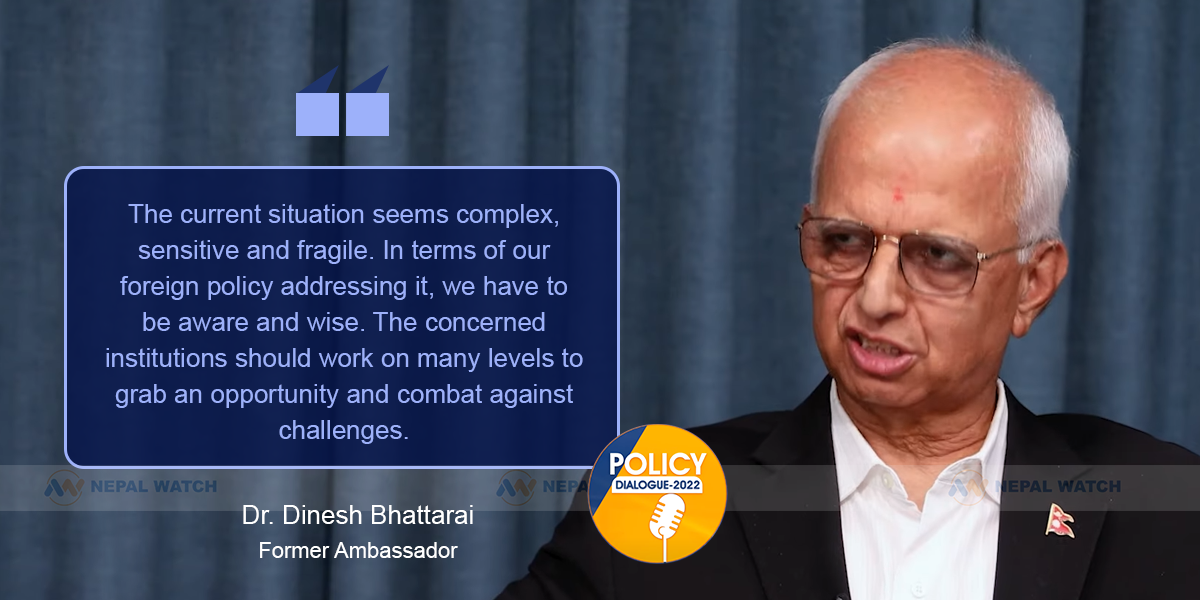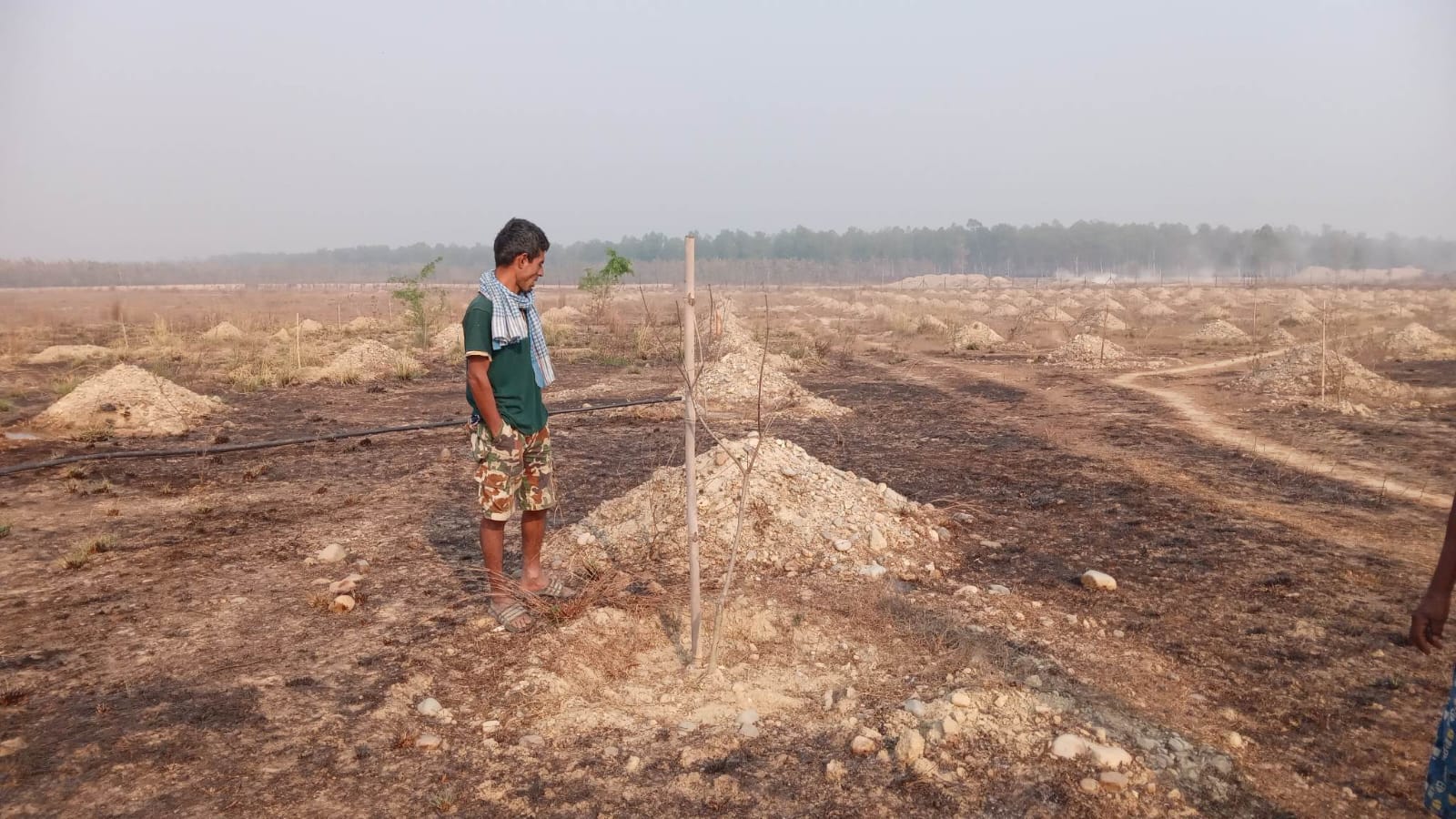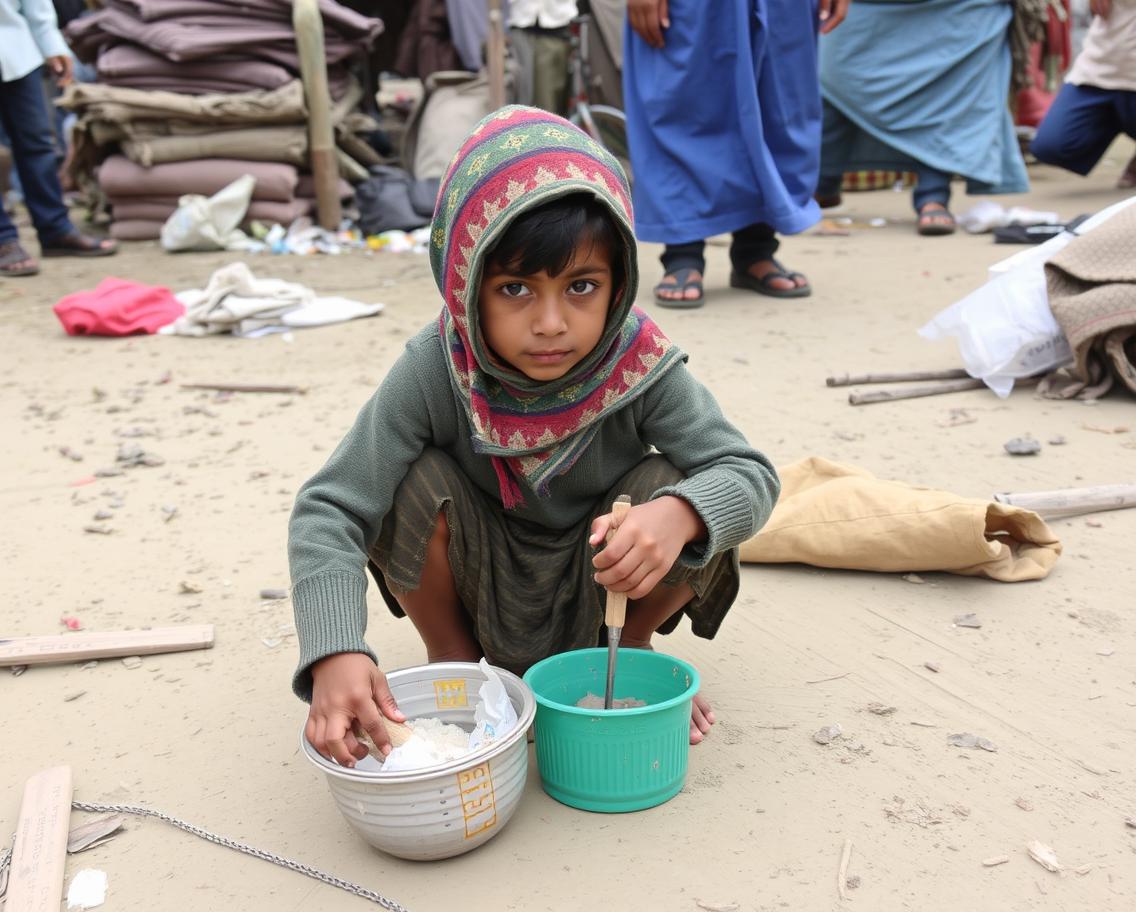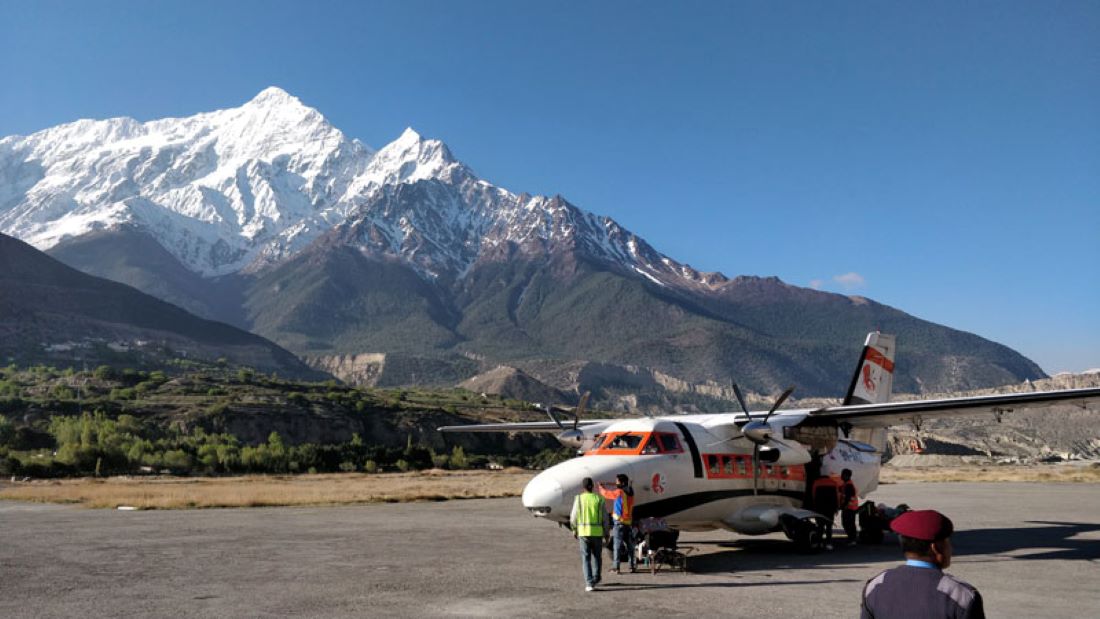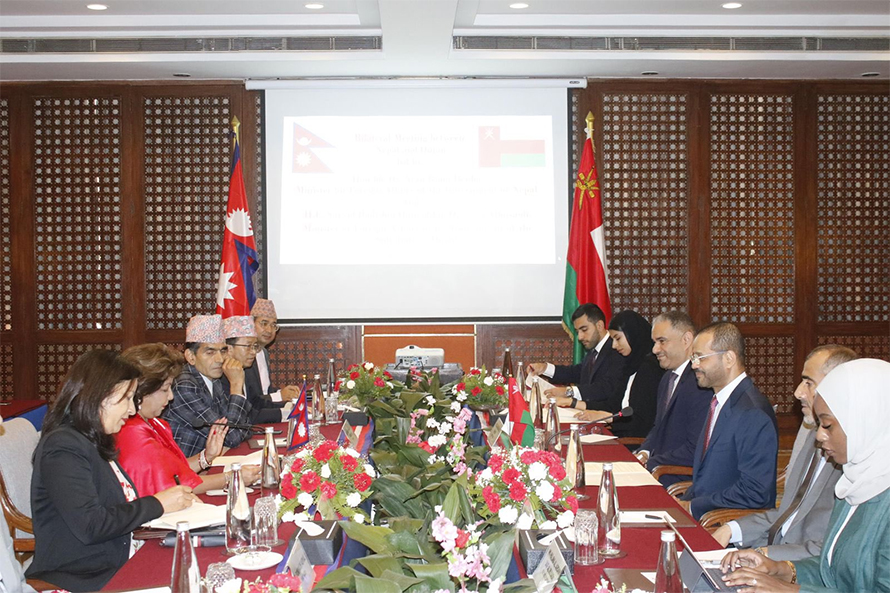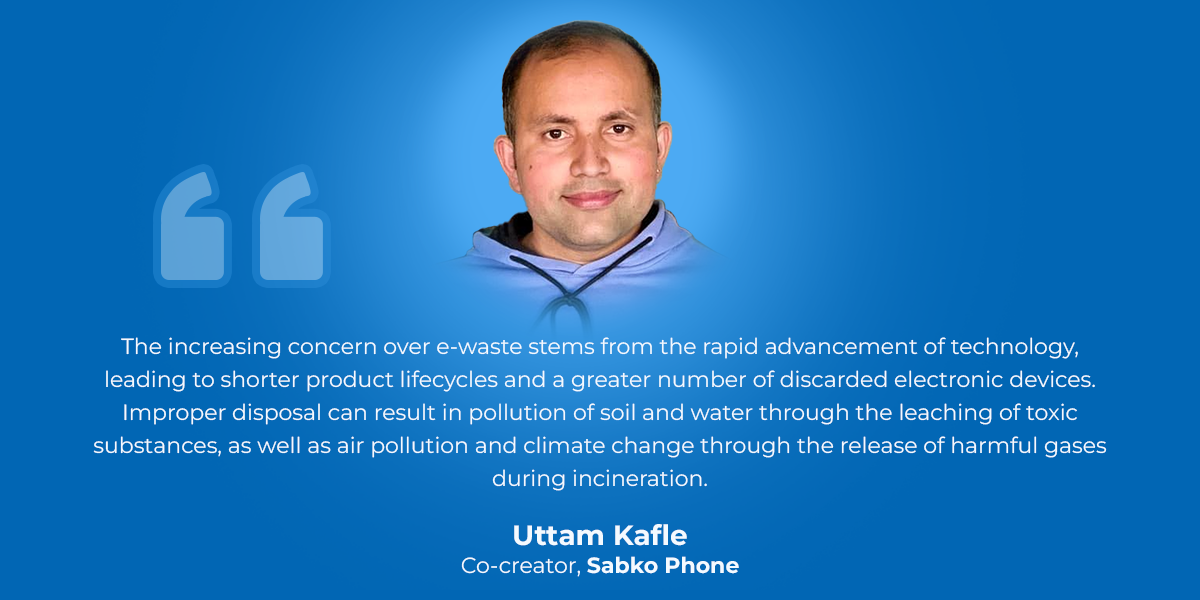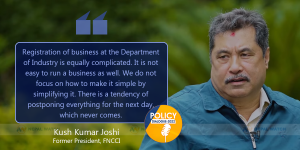Let’s nullify all the policies enacted before 2072
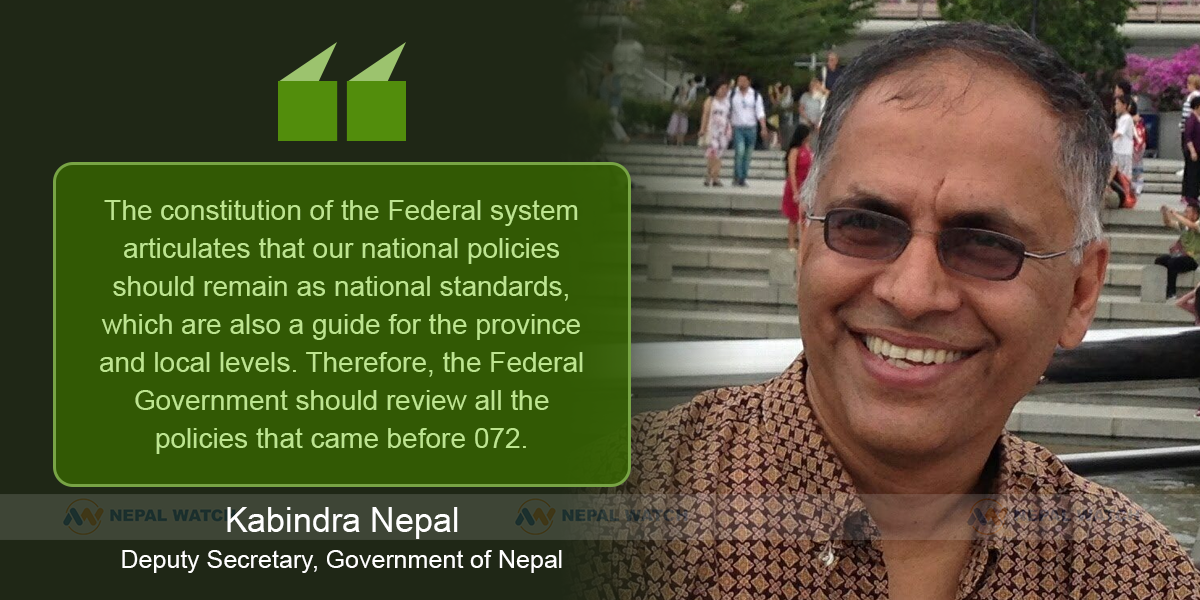
Kathmandu. To address the country’s current problems, reviewing the policies is one of the most significant concerns. For the first time in Nepal, the policies were reviewed in 074.
National policies are put in place to address existing public problems and fulfill commitments to solve them. Nationally, we have commitments to achieve. Nepal’s government brings policies to fulfill those expressed commitments. As much as we are active in drafting the policies, we are not in the implementation part. As a result, we cannot get the expected accomplishment from the policies. Our problems are not addressed by existing policies.
The policy review is conducted to find out whether the issues committed by the policy have been addressed. It covers the policy expectations, how much work has been completed/not done, and to find if there is a ‘gap’.
In 2074, we reviewed the National Drug Policy, Science Technology Policy, Rural Water Supply, Sanitation Policy, and National Health Policy. Among the policies we reviewed, the National Drug Policy was the oldest one enacted by the Government of Nepal in 2051. According to the TOR of the study, we were supposed to identify the problems in that area before the enactment of the law, what problems did the policies address? And what achievements were made?
If a ministry enacts policies, concerned ministries have the role to implement that policy. Unfortunately, those policies were not implemented. The policy requires laws, structures, and resources for implementation. For example, the objective of the National Transport Policy is to manage the transport system of the country. This includes reducing accidents, managing vehicle traffic, and allowing passengers to reach their destination at the expected or specified time.
The long-term goals and visions expected by the policy should be measurable. For example, the Health Policy was said to reduce a certain percentage of maternal mortality rate, and infant mortality rate and to enhance nutritional status, etc.
Have we been able to meet the objectives set by the policies? What is the implementation status? What is the working status of the structures and how is the inter-agency coordination? Are the laws enacted for the implementation of those policies? How much did we arrange the necessary resources for that? etc. are the concerned questions.
Some of the annual budgets are allocated from internal sources, while others have to be done by mobilizing foreign sources. In such a situation, it is necessary to see how the policies were implemented. The implementation of reviewed policies does not seem to be as expected.
The policy review elucidated that the Drug Policy that was enacted in 051 could not be implemented until 074. The situation in 051 was different than implemented period. New and additional issues come up with time. The policy should be revised and refined accordingly. Our policy is neither ‘updated’ nor nullified.
There are policies, but no one in our country monitors if it is implemented. Because of an inability to create a structure, policies are active but are not well implemented.
In 2075, the Prime Minister’s Office classified and analyzed the policies. There are 13 subject areas in the constitution issued in 072. If we add them one by one, there are 95 to 96 state policies. All policies are directed by the constitution.
After the promulgation of the Constitution of Nepal, how much are our national policies consistent with the state principles, fundamental rights, and state policies of the Constitution of Nepal? Which policies should be implemented by which ministries? What is the status of the policies? What is the duration of the policies? A study called Classification and Analysis of Policies was conducted to analyze and classify the policies drafted in the last five years, ten years, or more than ten years ago. I was also a member of that committee.
The study revealed that there is little uniformity in the ‘formatting’ of the recent policies. But before that, the pattern of policies issued by the same ministry in the same year is different. There is no uniformity even in the policies issued by the same ministry in the same year.
In that study, we made a common framework about the basic things that a policy should constitute. Out of those four policies, the National Health Policy was amended and the National Health Policy, 2076 came into being. The science and technology policy has been revised to become the Science Technology and Innovation Promotion Policy.
The study showed that all the policies that were enacted before 072 should be reviewed because, after 2072, we have been following the new Federal Structure. The constitution of the Federal system articulates that our national policies should remain as national standards, which are also a guide for the province and local levels. Therefore, the Federal Government should review all the policies that came before 072.
How compatible are those policies with our constitution? For example, our national policy states to promote both foreign employment and internal labor. However, there is no Internal Labor Policy. There is a Foreign Employment Policy but no Domestic Labor Policy.
Our constitution has encompassed the need to review policies for the first time. The constitution says that our policies should be tested along with their implementation. It is a great achievement for us.
Article 51 of the Constitution demands how much did the government of Nepal implement the policies of the state throughout the year? The Government of Nepal should prepare an integrated report of the policies implemented throughout the year and submit it to the President.
The President will send the report to the Federal Parliament for discussion. A separate committee will be formed in the Federal Parliament to debate and discuss the matter. It is envisioned that the committee will look at the issue of policy implementation.
Every year since 2072, the Government of Nepal has submitted a policy implementation report to the President. The report from the President also goes to the Parliament. But it is not heard that it was discussed in the Federal Parliament. If we can make the discussion lively and dynamic, we can be successful. This is like a ‘policy lab’.
We can clearly understand the reasons why the policies are not implemented after inserting our policies in that policy lab. The ultimate goal of the policy is to solve the problems of citizens. Hence, we have to review the policy every year. If that is not possible, it should be done in 5 years at most.
Our constitution is ‘Megha Policy’, the constitution has given us guidelines on what areas to work in. The policies made before the promulgation of the new constitution in 2072 do not address the current problems. Hence, the policies drafted before 072 should be amended.
The government should bring the annual budget program based on our policies. The Ministry of Forests and Land Conservation should look at policies such as the National Forest Policy, Climate Change Policy, etc. while preparing the annual program. Only if we make programs based on those policies, do those programs address our policies. But we do not have such a practice.
The policy helps in determining the destination or clarifying where we want to reach in five years. To reach that destination, we needed programs, our work practices also had to be policy-friendly. All our laws, behavior, and structures should be policy-friendly. There should be a policy review on a regular basis.
For example, there is a tourism policy drafted in 065. There have been numerous changes in the ‘dynamics’ of tourism. There are many such examples. Therefore, there is an urgent need for the ‘review’ of all the active policies enacted before 072. Our policies should focus on where we are heading. There should be a debate on whether the National Agricultural Policy will be as of now in the next five years. The Ministry of Federal Affairs and General Administration and Kathmandu University are working together for the Policy Review Lab.
Trending
Related News
Latest
-

Riddara RD6 EV Pick Up Launches Exchange Offer In Nepal
-

Shop More, Save More with Daraz Nepal’s 5.5 Best Price, Best Deals
-

Unveiling the Galaxy S25 Ultra 1TB: Samsung’s Tera-fic New Flagship Variant Kicks Off the New Year with Unprecedented Storage Power
-

UK announces £10 million for Myanmar quake relief
-

World Bank Approves financing package of 150 Million USD to Nepal




